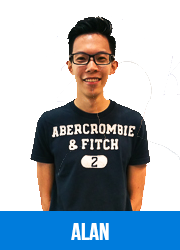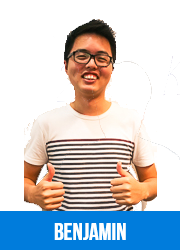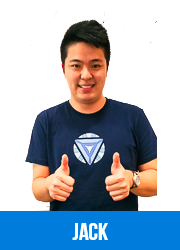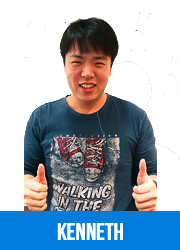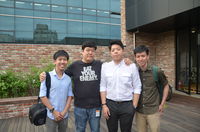Difference between revisions of "1415T2g1 South Korea/Reflection/day2"
(→Leon) |
(→Leon) |
||
| Line 398: | Line 398: | ||
I was really excited to visit the company I liaise with: “<span style="color:blue"><font size="5" font>'''FuturePlay'''</font></span>”, as I knew that I had to visit them after reading their portfolio and the unique things they do. FuturePlay gives an entire new perspective of the start-up scene by branding themselves as a company focusing on building companies. From the informative and interesting presentation by Steven, I gained a deeper and clearer understanding of the intricacies behind their company’s structure and network. In my opinion, each of the portfolio companies mentioned by Steven has the potential to reach mass markets and scale their business exponentially. I also feel that FuturePlay is very smart to invest in companies that are heavily HCI/UX centric as I believe '''smartphones are here to stay for the next decade.''' Moreover, the emphasis on user experience is becoming increasingly important and terms like “ease of use”, “convenience” and “flexibility” will be the next key criteria users look out for in mobile applications. | I was really excited to visit the company I liaise with: “<span style="color:blue"><font size="5" font>'''FuturePlay'''</font></span>”, as I knew that I had to visit them after reading their portfolio and the unique things they do. FuturePlay gives an entire new perspective of the start-up scene by branding themselves as a company focusing on building companies. From the informative and interesting presentation by Steven, I gained a deeper and clearer understanding of the intricacies behind their company’s structure and network. In my opinion, each of the portfolio companies mentioned by Steven has the potential to reach mass markets and scale their business exponentially. I also feel that FuturePlay is very smart to invest in companies that are heavily HCI/UX centric as I believe '''smartphones are here to stay for the next decade.''' Moreover, the emphasis on user experience is becoming increasingly important and terms like “ease of use”, “convenience” and “flexibility” will be the next key criteria users look out for in mobile applications. | ||
| − | [[File:futureplay. | + | [[File:futureplay.JPG|200px|thumb|left|alt text]] |
</div> | </div> | ||
Revision as of 03:52, 2 May 2015
South Korea
| Day 2 |
Contents
- 1 Day 2: Reflections
- 2 Alan
- 2.1 Quick Introduction of Pristones and Mr. Minhee Cho
- 2.2 Learning Points from Pristones and Mr. Minhee Cho
- 2.3 Quick Introduction of Seoul National University’s Entrepreneurship Major
- 2.4 Learning Points from Seoul National University’s Entrepreneurship Major
- 2.5 Quick Introduction of Korean Business Angel Association
- 2.6 Learning Points from Korean Business Angel Association
- 2.7 Quick Introduction of FuturePlay
- 2.8 Learning Points from FuturePlay
- 3 Benjamin
- 4 Gabriel
- 5 Bifang
- 6 Hosanna
- 7 Jack
- 8 Kenneth
- 9 Leon
- 10 May
- 11 ShaoJun
- 12 Sharon
- 13 ShiMin
- 14 Sithu
- 15 Siying
- 16 Thandar
- 17 ThuHa
- 18 Valerie
- 19 WeiYang
- 20 Zihua
- 21 ZuCheng
Day 2: Reflections
Quick Introduction of Pristones and Mr. Minhee Cho
Learning Points from Pristones and Mr. Minhee Cho
- A start-up gives you greater meaning – if you work for a company, you are merely a ‘part’ of the company. It is difficult for you to make significant changes in a big corporation
- Create a start-up while you are still young – in the current Singapore and Korea’s society, it is less difficult as compared to our parent’s generation to have the basic necessities of life (ie. Food). Furthermore, if you fail in your start-up, you can always pick yourself up and try again as you still have an abundance of time to utilize what you have learned from your mistakes and ensure that you do not make them again.
- Explore the idea first before you have investors – it does not mean that you will need investors to get your start-up going. There are certain things that you can do before you get any investors on board, such as testing the idea, developing the prototype and etc.
- Right idea, right market and right customer – focus on these 3 points which are crucial to the success of a start-up
- Importance of partnership in the start-up scene – Pristones has made several partnerships from its inception such as Platum, Venture Square and beSuccess and these partnerships assisted them to win over their competitors
- AAARR (Acquisition, Activation, Revenue, Retention and Referral) – Funnel concept of growth hacking where you find ways to make your business grow. Place more emphasis on the part of ‘Retention’ as it is difficult to regain customers once you lose them
- A good plan mitigates risks – it is important to have a good plan from the start as making changes to the plan will invite additional risks to the company
Quick Introduction of Seoul National University’s Entrepreneurship Major
Learning Points from Seoul National University’s Entrepreneurship Major
- Learning from experience – since it is not that viable to learn from experience in the start-up community, it is important that you pay attention and learn from professors or guest speakers on their advices when building your own company
- Similarities in the teaching content – having heard from Sulli the content which was thought in class, I now know that the content used to help entrepreneurship and quite similar between Singapore and South Korea
Quick Introduction of Korean Business Angel Association
Learning Points from Korean Business Angel Association
- Fewer restrictions as compared to VCs – In most cases, KBAA and its pool of angel investors does not determine any criteria for the start-ups to adopt, such mandating a time to implement a revenue model for the start-up to start gaining revenue.
- Start-ups experiences the worst times at 3 to 4 years old – Between 3 to 4 years since the inception of the start-up, it is known as the ‘death valley’ as start-ups are experiencing a crunch in terms of cash and establishing itself as a market leader.
- Attractiveness of big conglomerates still overshadows the Korean start-up scene – Mr. Go mentioned that even though the government and the private sector has come up with many initiatives to help start-ups, only 1% of students in each batch of graduating students are interested in creating a start-up. Big brands such as Samsung and LG are still attracting more students due to their prestige and this is a problem which needs to be solved before the trend of start-ups in Korea can move forward.
Quick Introduction of FuturePlay
Learning Points from FuturePlay
- Patents may not protect your product/service – although patents are widely filed in Korea, there are times where big conglomerates utilized loopholes, relationships with government officials and their superior financial prowess to ensure that they receive no punishment from infringement of a patent.
- Importance of understanding a problem – since the C-level officers and board of advisors have experience in creating a start-up, they understand the problems and concerns that entrepreneurs have. By tackling these problems and concerns, FuturePlay has successfully encourage more entrepreneurs to create start-ups in Korea.
From SNU, the main difference between people working in Silicon Valley as compared to most Asian countries pushing for start-ups such as Singapore and Korea is that their failures are proof of their abilities whereas in Asian countries, we look at the end result rather than the journey the individual has gone through causing students to be reluctant to pursue such a path. From KBAA, the main problems in which startups get stuck was that they either had patent issues, marketing problems or legal issues that they are inexperienced in and most of them get stuck when they needed funds to mass produce their products to the market. KBAA assists these startups by providing with funding to tide them over the period. Mr Go also shared an important point that we should start doing startups because in 20 years time, 60% of the stable jobs will be gone and we would be left jobless and would have many responsibilities such as providing for the family which would discourage us from creating a startup. From FuturePlay, we learnt that the patent war is won by whoever has the most money wins and it is really scary reality especially for startups and the only way was to file patents in different countries. We should also be very general when writing the patent to cover a broad spectrum and that we can make money just by considering many use cases for a particular new product and file every single patent that could be sold for a huge sum of money in just a short amount of time.
Pristones
One of the mistakes he shared was in 2010. After launching his application, Club Mix which was a very successful, he had started to imagine of great success for other ideas. Hence, he started to aggressively try ideas (4 ideas within a span of 1 year) and attempt to go big with them. However, he shared that he had failed to notice that he had lost his focus on the big picture - To ensure that the application he created has to solve a real world need. Hence, although his ideas were deployed lived, they all did not reap much profits and success. Because of this, half of his partners left and he was devastated.
This has taught me that as an entrepreneur, it is extremely important to ensure that one does not become complacent and loose one’s focus on the real reason for venturing into the startup market. Careful consideration and analysis of the market is also essential before an idea can materialize. In addition, it is equally important to put one’s heart and soul in to developing the startup and it will not be good if one is managing a startup and juggling studies at the same time. This is because the focus will not be entirely on managing the progress of the startup.
The next important learning point I learnt was the importance of thinking critically. For instance, the founder mentioned that when he first developed rocket punch, there was also a competitor who had the idea and was already in the midst of developing it. Nonetheless, by thinking critically instead of rushing into developing the application to match the competitor, they thought through it and instead conducted a pilot test of the application using free frameworks and analytic tools available (tumbler prototype which was done in 1 day). By doing so, this allowed them to better understand the market base they were dealing with and thus, beat the competitor in attracting the market base and gaining the patent rights.
Seoul University
The other student presented on his startup which involves the development of a UAV like plane to provide surveillance to help the Christians who were often harassed / attacked by people from ISIS. He shared that his passion for such development grew when he became aware of such "bullying" in the country and he hopes to make a change. From his statement, it really has led me to realize the power of startups. Although startups may be small, they do have the power to really make a difference in the lives of others.
.KBAA
Start-ups tend to have imperfect information and a lack of manpower to ensure that administrative, financial, legal and marketing etc. are conducted well. Hence, they are often faced with all sorts of problems. However, on a brighter note, there are available schemes which helps entrepreneurs leverage on. This includes KBAA’s matching fund where the government will match an angel investor findings in a potential startup. This is somewhat similar to Singapore where the government also provides such schemes to help start-ups tide through tight financial periods. He also share that the future of KBAA was to form a Tech Incubator Program for Startups (TIPS) which will serve to bring successful startups into TIPS town. This will form a conglomerate of start-up hub which allows ideas to be shared and generated. This TIPS town will thus serve to significantly leapfrog Korea’s startup ecosystem scene.
From his presentation, I learnt that although Korea may have a different approach in cultivating startups from Singapore, they all have a common goal- To better equip start-ups with the knowledge and know hows to improve and strengthen startups in the local scene. Such an action has showed how important and valuable startups are to most countries and that the traditional mindset where start-ups are deemed as "not the way to go" are slowly being erased. I am definitely confident that in the near future, there will be more startups being spin off via the joint efforts from local incubators, VCs and many others.
Future Play
Basically, inventors will pitch their product to future play, and if they pass the pitch, they will be allowed to be an Investor In Residence (IIR). As an IIR, they will be exposed to all the resources and help they would need and on top of it, they will be paid a salary, something which similar companies like future play do not provide. Future play will also assist in patenting and handling any administrative and legal issues to ensure that the inventors are being protected. An IIR is allowed to stay for 1 year in which should they spin off to become a company, FuturePlay will get a cut of the revenue share of 15-35% depending on the resources that the IIR has used. If the IIR does not performed up to expectation however, they will be kicked out of the residence.
Steven also shared about some successful spin offs / currently incubated companies such as Podo , Finger Sense and Kono Labs. Podo is a simple to use stick and shoot camera which allows selfies to be taken more easily. Finger Sense on the other hand, leverages on the different usage of fingers and learns the pattern of the user. For instance, the user can assign a nail touch as a double click function and a knuckle touch as a scrolling option hence, there will not be a need for a mouse or stylus anymore when using your smart phone. Kono labs is basically a smart scheduler which allows the user to use plan his time in the most efficient way. It tracks the pattern of the user using analytics. An example would be if the scheduler notices that that you tend to celebrate public holidays by not assigning any work / meetings to public holidays, it will automatically plan your meetings / work to not fall on public holidays.
From this presentation, I learnt about the importance of patenting an idea immediately so as to ensure that your idea will not be “copied” by competitors. However, although a patent for the idea has been filed, the law in Korea is often unable to guarantee fully that the idea is safe. This is because competitors can file for another patent which does the similar function but the language of the patent is phrased in another way. This shows that having a patent in Korea is also not really useful as it seems since start-ups whose ideas have been “copied” often still have to back out of their development idea as they lack the capital to sue bigger companies who have “copied” their ideas. Hence I have learned that if I was to set up my own startup, besides patenting the ideas, it is also important to operate stealthily to avoid unwanted competition (“copying”) from other bigger companies who would resort to “copying” ideas "unethically".
Pristone
I personally enjoyed Pristone's presentation as I felt Mr Choo specially designed his presentation for us. He shared a lot of pointers that are relevant to budding entrepreneurs like us.
My learning points from his presentation are as follow:
- Don't be afraid of failures. If we fail, we should pick ourselves up and start over again. Since we are still young, we are free of burdens which makes this is the best time to start since we have nothing to lose. There will always be a route paved for us if our start ups were to fail. I agree on this point as I feel that we are more towards the conservative side where we deem failures as a taboo. Furthermore, Singapore's university employment rate is much higher than that of Korea's and many other countries, thus if all else fail, we can always go back to work for the corporate world. Instead of being afraid to fail, we should take it as a learning opportunity so that we will not make the same mistakes again. Most importantly, we should not lose hope and faith when we fail because Rome wasn't build in a day too. Success comes to those who persist.
- Mr Choo strongly encourages us to go through the entire process of building up a start up, face challenges in managing and handling the start up, tackle and lastly, learn from it. I strongly resonate to his point as I feel that these are some examples of things that cannot be taught in class. Even we are not looking to stay in the start up scene for long, the entire process will teach us many valuable lessons that can further value add to the future companies that we are working for.
- Furthermore in a start up, it teaches you not only the hard skills, but the soft skills in managing your time and priorities even better than what we can do now. Time is of essence and since your business is in your own hands, it will stretch you to your limits to do things that you never know you could have done.
- One mistake that I realised I have committed is that whenever I always thought that a feasible idea is one that has a large target market. However, Mr Choo shared that we should not aim to target a large segment of the market during the initial phase. Instead, it will be better for us to focus on a smaller group of the market and slowly expand our customer base as we go along. This allows us to fully cater to the niche market and slowly attract the rest of the market into your products/ services, or scale towards the other segments of the market. He threw in an example that Google search engine didn't start big as well; it attracted more people along the way due to its user friendliness of the search engine. It is more important to have a realistic plan!
SNU
Just like what Sulli shared with us, SNU teaches entrepreneurship modules to encourage their students to develop their start ups, which is similar to courses that SMU provides.
However SNU provides a more well rounded major because students from the different faculties are able to take up this major, whereas SMU limits it to technopreneurship which is only available for SIS students. In this case, SNU has given a better thought at it since it is more practical for the team to have diverse capabilities and background to compliment each other in a real start up environment.
Unlike SMU, SNU requires their students to literally develop a start up at the end of their major. They encourage their students to develop their ideas into real start ups instead of grading them based on their ideas.
However I feel that SNU should follow SMU's footsteps to have an office space to incubate students. This helps to bring entrepreneurs together as well.
From the founder of angel swing, he also reminded me that a start up needs not be entirely about monetizing, it could be for a greater and more notable cause as well. For example, angel swing creates a drone like flying object which allows people staying near the ISIS area to be aware of the ISIS activities to protect themselves.
KBAA
Mr Go shared that not many people dare to take the leap of faith into the start up scene because most parents feel that this route possess higher risks than working for the corporate world. Thus, the government is also doing their part to educate the younger generations about entrepreneurship and to provide them with the right resources to learn to properly manage and develop a start up. Mr Go also emphasized that we should "always focus on our passion, because money will come to you when you have passion."
FuturePlay
I was totally blown away by the presentation by FuturePlay! I learnt that we should really learn to think out of the box and be creative. Mr Baek shared with us about this start up whose aim is to create as many patents as possible and sell them to large corporations to earn money! And co-working spaces come into place to spur creativity.
Mr Baek also encourages us to step out of our comfort zone and go for our idea if we have one. He mentioned that there will always be people who will be interested in our ideas, especially accelerators like FuturePlay.
Through his sharing, I also learnt that having a good team is really, really important. FuturePlay has a great team that contains lawyers to help them with the patenting of start up ideas. FuturePlay also has a team member who does the prototype of products, to aid in the pitching of their start up ideas to investors.
Although we are advised to start early, does not mean we have to hurry and start rushing our ideas. We should think carefully about our ideas and whether the idea actually helps to solve a real world problem. Of course, this is true because ideas which do not solve any problem will not be able to sell well to the people.
I also learn from KBAA and Future Play that often, the parents in South Korea are often not so supportive when their child want to start a business and prefer they work for a big company instead. I think the situation in Singapore and Indonesia is slightly different. Although often they are worried about their child starting a business, they are quite supportive because they believe that in the long-run, having your own company is more sustainable.
Another takeaway is that you should do what you like and enjoy because when you are passionate about something you will be willing to work hard for it. I think every startups have their passion for their ideas. Although the big companies also have their own passion, I think it is more apparent in the smaller companies because every single person is passionate about the idea and willing to work extra hard for their idea to come true.
Pristone
Pristone was founded by Mr Minhee Cho, an extremely experienced entrepreneur from Seoul National University. What makes him different is that he has the highest number of startup failures, which has demonstrated his unwavering perseverance and bravery in Korea which has a culture that is intolerant to failure. Due to this, he imparted an unusually large number of lessons which have impacted me significantly:
- Our generation is fortunate because unlike our parents, most of us are affluent enough such that we do not have to worry about basic needs for survival like food and shelter. This means that we have the freedom to take more risks such as creating a startup instead of taking a stable job as we have a safety net for failure – our families.
- In a company, we are only doing what the company wants and not what we want. This means that unusually ambitious and creative people will feel stifled by the company’s culture and hierarchy. The answer to this is to become our own boss so that we can fully unleash our creativity into tangible products or services.
- Typically, startup founders work long hours and are mentally occupied with their work during the early stages of a startup. This means that they will have to give up a large portion of their social lives with their families, friends and/or significant other (SO). Mr Cho brought up the example of Mark Zuckerberg who sets a fixed amount of time to fully accompany his wife every week without any business related disruptions to maintain a healthy relationship.
- During the early stages of a technology company startup, large amounts of money are needed to fund engineers in order to produce and deliver code in order to develop a minimum viable product that is able to solve a real user need as soon as possible.
- We should try out as many ideas while we are young as our opportunity cost of failing is still low. If we have jobs, we can convert our ideas into side projects so that we can leverage on the company’s resources and network to see if it is a viable idea with potential.
- In a startup, typically there are managers to take care of the business aspect and the engineers to work on the product. However, there are ‘freaks’ – unusually talented people who can somehow manage to do both.
- In today’s technological edge, there are many available frameworks and software available online. One just needs to know how to combine and use these available technologies in order to create their desired product and there is no need to create applications from scratch.
Seoul National University (SNU)
Suli, an SNU student in the entrepreneurship track, together with her friend Peter,an exchange student from Georgia Tech University, hosted a friendly cultural exchange session with us. She mentioned that the part of the reason entrepreneurship boom in 2007 was due to necessity as there were not enough jobs to go around and Korea’s economy was slowing down. To overcome this, the Korean government wanted to cultivate a healthy ecosystem to encourage more startups. I was very impressed by Peter as he was working on a UAV prototype which only costs 2000USD to help Middle Eastern villagers conduct surveillance against ISIS terrorists who regularly raid their villages.
Korean Business Angel Association (KBAA)
Mr Go, the Chairman of KBAA, shared with us the funding schemes available to Korean startups. Currently, KBAA helps to match startups to angel investors and the government will match the funding in a 1:1 ratio, taking a back-end support role. Their most notable scheme is the TIPS accelerator program. In addition, Mr Go shared with us several fun-facts regarding the job economy in Korea:
- In Korea, only 1% of the local students are interested in entrepreneurships.
- The lack of interest is mainly because parents think that going the entrepreneurship route is high risk with a low chance of success, and that students are largely ignorant of the startup support channels and entrepreneurship in general.
- In the near future, 50% of all jobs will change drastically so job prospects are becoming increasingly unstable. Thus, it is predicted that even stable jobs have a lifespan of 10-20 years before the employee is being forced to quit. When this happens, people who are 50-60 year olds usually have no other avenue of employment and often resort to creating startups or franchises. Such individuals usually have difficulty adapting from the passive nature of being an employee to the active nature of being a boss.
Finally, Mr Go imparted some valuable quotes to us:
- If you do what you like, most likely the money will follow.
- Everyone should participate in a startup at least once in their lifetime for the experience.
FuturePlay
We visited futurePlay, which is a startup accelerator that specializes in tech-centric startups. Steven, who is the marketing director, was extremely frank with us and gave some interesting comments regarding the startup scene in Korea:
- Many big Korean companies are not creative (due to their management executives), but its individual engineers are creative. This leads to engineers’ potential and creativity being stifled while they are working in these companies.
- Inventors are identified by their visionary ideas and the ability to execute them. Those which with visionary ideas but no idea on how to execute them are called dreamers, and those with ability to execute those ideas but are unable to generate them are called engineers.
Today, we visited Pristone, TNT Crowd, SNU, KBAA and FuturePlay.
One key takeaway from the visits was that it is really important to make good use of time and quickly start implementing your idea in order to gain a first mover advantage and corner the market. When creating a prototype, using existing resources available to us in order to increase the speed of production actually allows for us to not only quickly evaluate the validity of our solution, but also the allow the market to use our solution first and lock them in. It is often the case whereby there will be similar inventions and products created during the same time frame. Cornering the market first will starve our competitors of the market share and eliminate them, giving us more time to improve on the product afterwards. This same concept also applies to companies such as FuturePlay, where they quickly decided to invest in a company (fastest being 6 hours). They understand the importance of a quickly making decisions on potentially good ideas, in order to prevent competitors the same chances of doing so and to allow FuturePlay to invest and obtain a share of the company. They also push companies quickly, within 2 years to give these companies a higher rate of success.
Today’s trip to Pristones reaffirms my desire to run a start-up in the future. I could strongly relate to Mr. Cho (CEO of Pristones) when he shared his experiences of being stifled in his creativity while working for a big corporation. Also, I could also resonate with his belief that “we only live once, and we have to follow our dream”.
Although starting a company involves a high risk, and if it means I might fail in the future, I will still live with no regrets. From the multiple companies I have read and research on, majority at least failed 2 to 3 times before they finally succeed. Hence, apart from having a good product idea and a good team, I believe that being resilient in times of failure is one of the most important factors to having a successful start-up. I also gained an important lesson that the key to a successful start-up is to solve a real world problem with a realistic plan and focus. Often, it is very easy for us to be fixated on how good our product is and forget the real needs and wants of the user. Hence, it is important to have empathy for the users, to immerse and put ourselves into their shoes so that we could really understand what the problems they are facing, and what the best approach to solving it is. After all, the users have the final say as to whether the product is a good or bad one.
The next visit was at Seoul National University, where we were hosted by Sulli, a student majoring in entrepreneurship. After her short presentation, I asked her on her opinions regarding the acceptance of the younger Korean generation running their own start-up. I am doubtful of her response saying that the Korean culture is very encouraging towards start-ups. Due to the strong support she has garnered from her family and relatives, I feel that she has made an overgeneralized statement. From the subsequent visits, to both KBAA and FuturePlay, I received a more realistic judgment regarding the acceptance of the young joining start-ups. For instance, it has been mentioned repeatedly by a few companies that unlike in Silicon Valley, people who failed in their start-ups are simply deemed as failures and it will be difficult for them to secure a stable job subsequently. Additionally, I am also very surprised to learn from Mr Goh from KBAA that only 1% of all Korean-educated students are interested in running their own start-up. With initiatives such as providing education about entrepreneurship, the start-up trend is picking up quickly in Korea especially amongst the young. Even so, I believe that it will still take at least 10 more years before the Koreans become more accepting towards start-ups as it involves complex issues such as changing people’s mindset, their beliefs and values.
I was really excited to visit the company I liaise with: “FuturePlay”, as I knew that I had to visit them after reading their portfolio and the unique things they do. FuturePlay gives an entire new perspective of the start-up scene by branding themselves as a company focusing on building companies. From the informative and interesting presentation by Steven, I gained a deeper and clearer understanding of the intricacies behind their company’s structure and network. In my opinion, each of the portfolio companies mentioned by Steven has the potential to reach mass markets and scale their business exponentially. I also feel that FuturePlay is very smart to invest in companies that are heavily HCI/UX centric as I believe smartphones are here to stay for the next decade. Moreover, the emphasis on user experience is becoming increasingly important and terms like “ease of use”, “convenience” and “flexibility” will be the next key criteria users look out for in mobile applications.
Pristones
Mr. Minhee Choo, CEO of Pristones shared with us his experiences in building startups.
He mentioned that it is important to separating your brand name from your company name. So in case your brand/product doesn’t work out well, you can simply create a new product without affecting your existing company name.
He also encouraged us to start young, as be believe that the best time to start is while we are still in school. Reason being that we don’t have much to lose when we are young.
His view in creating a startup is that business is high risk and high returns and it worth a try. Even if you will be really busy you need to learn to manage your time and priorities well. Some tips he shared with us with regards to building a startups:
- It requires time and resources to try out our ideas
- When we work on a new product change something wisely and do lots of experiment
- In order to be creative you have to always define a problem first before finding a solution.
- Similar to JJS he always told s to always start small first, so to provide the best experience for your stakeholders.
- He also shared with us how his business has benefited from first mover advantage.
- Mass marketing is good in Korea
Some key takeaways, the importance of first mover advantage, the importance models to look into such as “growth hacking and startup metrics AARRR (Acquisition, activation, retention, referral and revenue)”. Pay more emphasize on customer “retention”, as it will help your business to grow in a long run. Separating brand name from company name is important. Always define a good problem first before creating a solution.
SNU
Suli being a young entrepreneur and a third year student at SNU shared her experiences with us. Her second major is in entrepreneurship. The major is open to all SNU students. This provides an opportunity for students from various faculties to interact and build startups together. I think this is a really good structure it creates an opportunity for students from diverse backgrounds and skills to interact and work together making it easier for students to create a team of members that values adds to their shartups.
Her entrepreneurship courses are conducted by professors, alumni and venture capitalize. Being in an entrepreurship track students are provided with the platform to seek startup advices from professors, experience CEO and via discussion within their course mates. They are also provided with the opportunity to talk to the venture capitalize.
I felt that it is interesting that SNU is providing such opportunities to students from various faculties that are interested in becoming entrepreneurs as it make the process of sourcing of partners, venture capitalize and guidance much easier. As many of times there are many students with amazing ideas but couldn’t find the right partners to execute their plans.
All in all, I think the entrepreneurship major is a great platform as it provides guidance and opportunity which I believe this program will greatly impact students that wishes to build their own startup.
KBAA (Korean Business Angel Association)
Mr Go, Charman of KBAA shared with us that Korea government is trying to change the Korea startup culture from the initial loan culture to investment culture as their government is very supportive of startups in Korea. So how KBAA helps in activating the entrepreneurship is by acting as a platform that helps to do 1 : 1 matching for startups and angel investors with the government being backend support to these startups. After funding, startups are able to get mentoring from the other senior startups.
KBAA is suitable for new startups with new creative ideas but lack of a revenue model.
Some takeaways from the talk is the importance of doing what you like as when you do what you have passion in, the money will come. And we should all try to work on a start up at least once in our life.
FuturePlay
Steven shared with us Future Play business model and I was really impressed by how much future play has accomplished for being a startup for less than a year. They have a very unique business model, being a company builder for new companies/ startups. In short they are a startup that supports startups. Future play has 2 main focus
1. Primary focus is to build a network of great companies
2. Secondary aim is to invest in the projects
They shared with us the importance of being an entrepreneur inventor.
The main take away is the important of having a patent is as many projects has failed due to the lack of knowledge of the importance of having a patent.
Future Play is definitely among the most interesting companies that we have visited. Establishing itself as a startup for startups, it does both investments and in-house incubation for budding entrepreneurs. One of its most unique aspects is the kind of support it provides for the entrepreneurs under its incubation program - by providing them with an income for a year. As income stability and capital investment are among the most crucial factors to starting up one's own business, the comprehensive support that Future Play provides is very practical and useful to the entrepreneurs. Besides, Future Play also made me realise the importance of protecting whatever we have created. Hence they also shared with us the numerous patents they have filed, which possess much inherent value when other bigger companies want to incorporate such patented technologies in their software and programs.
Pristone
There was something Minhee said that was seemingly a passing phrase, but really left my impression on me. Minhee said there was “one thing that changed his life” – his senior asking him to join SNUSV, the student entrepreneurship club at SNU. We all have moments like these, or perhaps a series of such moments – moments that change our life. For a career that differs so much from the ‘normal path’, these moments are truly an important part of our decision making in pursuing or not pursuing entrepeneurship.
Seoul National University (SNU)
The concept that you have to start a business before you can graduate from the programme was interesting and is something I feel SMU should explore adopting. While students may be taught the process from ideation to business model validation to product development, if they were not required to actually start the business in the course, such efforts may not realise in real life due to various hesitations. Hence, such a mandatory requirement could increase the youths engaged in entrepreneurship and bring many ideas beyond the ‘school project’.
Korean Business Angel Association (KBAA)
President Go’s strongest message was that everyone should do a start-up at least once in a lifetime. And if you were to do it – it’s better to start at an early age. I strongly believe in this because building a start-up teaches you so much more than an average internship experience and the skills learnt would be transferable to other careers even if one were not to pursue entrepreneurship in the long run. For example, analytical thinking, management of people, crisis management, and much more.
Future Play
Future Play’s business model fascinated me and I personally feel that it was a brilliant way of adaptation to the local market. Inventors in Residence (IIR) that pays inventors full salary during the 12 month programme to bring the really talented and smart engineers into entrepreneurship was very well-catered to the Asian culture, where failure or even not working for a large company, is frowned upon.
I noticed that many of the deep technologies featured in Future Play’s portfolio are in wearables and big data. These are two areas that have been featuring in Silicon Valley as well, suggesting that start-up trends are moving towards these two areas.
I also learnt more about the Korean start-up ecosystem, mainly how large technological companies in Korea (Samsung, LG) do not acquire start-ups and would rather spend more money and time developing it themselves. This presents a huge obstacle to the development of start-ups and directly contradicts the Korean government’s push to grow start-ups.
Pristone
Pristone is located in Seoul National University (SNU) where Mr. Minhee Cho (CEO of Pristone) graduated from. SNU has an entrepreneurship club called SNUSV (Seoul National University Student Venture) which gathers students with interest in entrepreneurship and is a support group for nurturing potential entrepreneurs. Mr. Cho was introduced to SNUSV club in 2002 by a senior and this experience changed his career decision from business management in mechanical engineering to entrepreneurship. He went on to lead the club as president in 2004.
Up to date, he has had a wide range of experience tinkering with potential business ideas which he shared with us.
In June 2003, he joined Samsung as an intern for about 7 month. As a person with overflowing creativity juice, he found that he did not have much freedom in expressing his ideas. Working in a company was also not the fastest and best way for him to earn money. Hence, he decided to take on the path of entrepreneurship.
His first start up, CIZIX, was in October 2005 but it wasn’t successful as they were too optimistic about the product. He then set up Rebi in Feburary 2007, a search engine, but it was disrupted by the release of iPhone and money from investors was scarce at that time. The team later abandoned the project as they could no longer financially support the development as money was needed for technology, research, and maintenance of the application. He went on to develop some other ideas and in December 2010, he set up Pristone with some of his friends who worked with him on previous projects.
One advice he shared was to keep the company name different from the brand name. This allows the company to develop many different applications under one brand.
The first application developed under Pristone was Gamification in March 2011 but they were disappointed as they had high expectations. Also in 2011, they developed 3 other applications (PetsGram, Kaktail, Now) which all were not well received by the public. They reached a panic period as they didn’t know what to do but they kept trying new ideas until the team broke up in February 2012.
Then in August 2012, the remaining founders started getRocket using the Tumblr platform. getRocket was a platform dedicated to job search in start-ups. While they fast-tracked their development of the idea through Tumblr, another company which came up with the same idea before them took 3 months to develop a website for it. This resulted in Pristone gaining first mover advantage. When getRocket was proven to be well received, they moved it to a website and renamed the application to RocketPunch.
I’ve learnt a lot from Mr. Cho and to sum up my learnings, it would be to
- Try various ideas before you decide to start a business. You will need time and resource to try but “if you make time to try, you will find the answer”.
- Take your time to find a product/service that really meets the needs of people. No point rushing and coming up with something that people don’t want or need.
- Solve a real world problem with realistic plan and focus.
- The best time to try starting up a business is when you’re in school.
- When you start testing an idea, you don’t need to fully develop the service. Making use of existing resources and platforms is a way to quickly speed up your development process.
- When a product/service becomes successful, don’t get too ahead of yourself. Updating the service is just as trying as the initial development. If you update your service improperly, you will lose users. Hence, it is important to test the waters to see if the added functionality is what the users really want.
- Partnership is very important. Pristone has had partnership with Venture Square, Platum, and beSuccess which helped them win over their competitors.
- Growth hacking can help to measure success and failure. The funnel concept in growth hacking is coined as AARRR and consists of Acquisition, Activation, Revenue, Retention, and Referral. Out of them all, retention of users is the most difficult.
- Address culture difference in the service. For example, Linkedin requires education graduation date but Koreans go by entrance date as some students take long breaks in school for other activities.
- Having connections is important. Through connection, he got jobs, found co-workers, got information for his business and they were of great support to his growth as an entrepreneur.
- Investors always ask “Why you?”.
Seoul National University (SNU)
We were received by Sulli, a student studying in the entrepreneurship course offered by SNU. She shared with us in a lecture hall about what she learnt in the course. Entrepreneurship first spiked interest in 2007 by the need for more jobs and it’s only recently that universities introduced courses to guide students who are interested in setting up businesses. The course was introduced 3 semesters back and they have received 20 students per semester and currently there are 60 students studying in the course. The course caters modules to help students who already have start-ups or are planning to start a business. They learn about product development from identifying the problem, customer segmentation, to revenue streams. In the course, they also have student organized events and activities like study groups, visits to Silicon Valley, and entrepreneurship training.
The entrepreneurship sector in South Korea is still growing and we expect to see more support in universities for the development of start-ups.
Korean Business Angel Association (KBAA)
We had a short 40 minutes session with KBAA and it’s a relatively new non-profit company that helps start-ups get funding from angel investors and the government. Mr. Go, Chairman of KBAA shared with us that marketing, patent/legal issues, and funding are common problems that start-ups face. Hence, KBAA serves as a platform to build an angel investor network for aspiring entrepreneurs to tap on. The reason why KBAA focuses on angel investor is because angel investors are open to investing in ideas that have yet to be solidified.
KBAA has a Angel Investment Matching Fund where the government provides the entrepreneur with an investment amount that matches the angel investor’s investment. They also have a Tech Incubator Program for Startups (TIPS) which has mentors to guide the newbies. These mentors are usually people who have start-up experience and want to contribute back to the entrepreneurship eco system. This enhances efficiency of finding good startups with good ideas. After the angel investor decides to invest, the government will then review the idea and decide on how much to invest. In addition to the two activities above, KBAA also provides Angel Forum Operations which provides platforms for entrepreneurs to learn from people with experience in the field.
Mr. Go also shared with us that only 1% of students are interested in start-ups. This is because most people aim to enter the big brands like Samsung and LG and many are also unaware about the support for starting up a business. He estimates that in 20 to 30 years, many of our current jobs will become obsolete and by then, people will have to find new way to earn money.
From the sharing session, I believe that the entrepreneurship support in South Korea is getting stronger but there needs to be an increase in awareness of these opportunities.
FuturePlay
FuturePlay is a company builder which makes investment in technology focused companies. They support innovators who have the capability and knowledge to kick start their business. Currently, they have funded many companies with potential to roll out their product/service. He shared with us about a few companies like
- FingerSense - an application that senses different objects and parts of your hand to perform various functions
- WAVE – an application which measures air quality in your current surrounding
- SNAP – interactive mobile prototyping application
and more.. FuturePlay creates patents for these ideas and keeps them until the product/service spins-off in the market. They provide mentorship for entrepreneurs with high potential to disrupt the current technology industry and they have been very successful in nurturing these entrepreneurs.
Like KBAA, FuturePlay is part of the entrepreneurship ecosystem that supports aspiring entrepreneurs and we can look forward to seeing revolutionary technology in the market soon.
On day two of company visit, we visited to Pristone, Seoul National University, Korean Business Angel Association (KBAA) and Future Play. From the visit of Pristone, the founder Mr. Minhee Cho, shared us about learnings points that he gained from his 10 years of experience in startup environment in Korea. He shared us that it is important for a startup to focus on one concreate idea and come up with minimum viable product to test market response. He told us that if you have a new product idea/solution to solve problem that you are facing in day to day activities, it is worth to try to start a startup business. And it is a very good time to start to give it a try when we are young. I have also learnt some of the theoretical concepts applied in doing a startup, AARRR (Acquisition, Activation, Revenue, Retention, and Referral) and Growth Hacking concepts which highlights about the importance of retaining the customers and make them continue to use your application. In terms of marketing aspect, tech startup companies starting to shift their product marketing products via mass media advertisement on TVs instead of usual advertisement platform which is Kakao Talk.
From our visit of Seoul National University (SNU), I have learnt on the aspect of how does Korea government trying push forward to bloom new startup companies from young generations in future. I have also knew more about people working culture between Korean and Silicon Valley from SNU student, Sulli, who visited there. From her experience, parents are getting more opened to their student working in startup companies or starting their own startup instead of working for Big MNCs or local companies. We can also see similar situation in Singapore whereby parents are becoming more familiar with startup nature and giving freedom of choice to their children in perusing their carrer.
During our visit to KBAA, most of the local Korea startup companies are facing with different types of challenges such as financial, patent, marketing and legal. KBAA’s role is to help the startup pass the death valley of most of the companies face after running for 3-4 years. The chairman of KBAA shared us about their involvement in Korea startup ecosystem which is Found --> Growth --> Exit --> Reinvestment. Another worth taking note is average less than 3% of university students from Korea interested in startups because there are a lot of things to prepare beforehand and didn’t know how to start. Another reason is parents’ objection to do startup.
From our visit to Future Play, I have learnt about patent market in startup world and people doing business with hundreds of patents they are holding in hand. And he gave us a general idea of it is important to cover as broad explanation as possible when writing a patent.
Pristone
The CEO of Pristone, MinHee Cho initially wanted to be hold a managerial role in a company. However, his sunbae (high school senior) changed his decision and life. His sunbae bring him to the entrepreneur club. In there, MinHee realise that he is more suitable in doing start up. From his seniors, he learnt that you must always separate your brand name with the company name. That is because you might be creating other products, but if you uses your company name as your band name, then what happen to the new product? He learnt a lot from SNUSV.NET. The reason why he decide to start a company because if you work in a big company, you will always be only a “part” of it. And since you only live once, you should follow your dream. He also mentioned that there’s nothing to lose if you fail to start up. We are not our parents’ generation where we always have to worry if there is food for the family. Also, we can always start again. To him, “Business is ‘High Risk, High Return’, but worth to start”. So even though the risk is high, but the return is high as well. A lot of stuff can be gained through start up.
However, with start up, it will damage relationship. Through his talk, I learnt that the creator of Facebook, Mark Zuckerberg do not have much time for his then-girlfriend. Example he might be called up for work or need to read his emails during their dates. Thus to avoid damaging the relationship, they agreed to set aside 3-4 per week where there will be completely no work disruption.
“Entrepreneurship is the only way to achieve my goal” is something that MinHee mentioned as well. He believed that creativity will be limited if he works in a company. His colleague might just stole his idea without crediting him. He also said that you will not be able to buy a house in Seoul even if you and your wife work 10 years as the top management.
During his presentation, I learnt that 2007 was the worst time to start up in Korea. Because iPhone was launched in 2008 in a lot of countries and 2009 in Korea. Thus there’s a change in technology. Hence there isn’t much money to support start up. He also went into Gom TV in 2008 December. And this is the place where he learnt where he did wrongly.
He stated that you do not need to start a project with money and a real company. You can develop the application during your free time. Example Hotmail was created by 2 engineers during the weekends. However, he also mentioned that you have to start early, else others might have patented the idea.
Towards the end of his presentation he taught us some mistakes that we should avoid. You should look at the market demand and not just do a product that sounds great/cool. You should do on a real world problem. You need to know the market and competitors well. Also, it is important to have the capability such as having engineering in the group. Never do big service at the start. Example Google started off as a search engineer for a school before slowly becoming the current Google that everyone knows. You should also stay focus by doing only 1 project at a time. It is not advisable for students to do start up during school time. Also, always take note of the cultural different between countries. Like LinkedIn isn’t successful in Korea. That’s because LinkedIn asked for date of graduation. However, Korean are more particular with date of entry because the male students will need to go for NS so graduating late.
Seoul National University (SNU)
The student from Seoul National University (SNU) is Suli. Her 1st major is international relationship and her 2nd major is in entrepreneurship. Initially she wasn’t sure what second major to take. Thus when she read the course description for entrepreneurship, she was just trying her luck, which in the end she got it. According to her, there’s only 5 girls in the whole cohort of 60 entrepreneur major student. So it seems like there is lesser Korean females who are interested in starting a business.
Their entrepreneurship major provides various programs such as the programing study group, entrepreneurship training which is a 2D1N student camp. Also, they have something like TSM where they went to Silicon Valley. These program are open to any SNU student regardless of your GPA. I believe this is a good approach as there are some students that might not declare their 2nd major as entrepreneurship but yet has the interest in starting a company.
According to her reflection after going to Silicon Valley, she felt that the people in Silicon Valley are not afraid of failure. When the Korea VC invest in your company, they expect you to success. But it is not easy to success. On the other hand, Silicon Valley people are not afraid of your failure.
Korean Business Angel Association (KBAA)
Their main purpose is to create new jobs and growth. To build a start-up ecosystem which starts from invest to growth to exit and to reinvestment. In the past they did loan type, but they are not moving towards the investment type. Being in the investment type is more beneficial to the start-ups. That’s because if it is under a loan type and if the product fail, the company will be considered as low credible. However, in the new system of investment type, even if they failed, the company can still start a new company.
KBAA provide few programs, such as the Angle Investment Matching Fund where it is a 1 to 1 investing share with an angel investor. The 2nd program is the TIPS (Tech Incubator Programs for Startup). This is the accelerator investment at 100million krw minimum. SMSA provide 900million krw more. Members of this program can get mentoring chance from famous entrepreneur. This program has 68 companies currently and 42Billion krw had been spent. Lastly, there is the Angel Forum Operation where it is a forum for young entrepreneur.
KBAA future plan is to have a “TIPS” Town. They aim to launch this by June/July this year. They gather start-up under the TIPS program and intend to build a 2nd Silicon Valley in Korea.
Unfortunately, these programs are only available for company based in Korea. Mr Go encourages us to start a company because he predict that it will be hard to find a stable job in the future. 50% of jobs will disappear. Thus it will be better to start your own company. According to statistics, start-up don’t success on the first round. In Silicon Valley, you will need around 3 failure before you succeed.
He left us with a very thoughtful phase “When you try to earn money, you wouldn’t earn it. But if you follow your dream, the money will follow you”. I agreed to that because with passion, you can push yourself to work harder and better. Thus the money will eventually follow you.
FuturePlay
It is a start-up that build another start-up. Their early focus is on human-computer interaction. It has 4 phase – innovating, hardware platform, service platform and big data analysis. The big data analysis is to find unmet consumer needs. There’s investors that invest in FuturePlay. And FuturePlay consist of advisors, partners, investors in residence, boosting company and specialist. Investor in residence has a maximum stay of 1 year. And they will receive the same salary as they have at their own company. The boosting is also 1 year max which FuturePlay will decide if this start up can be spin off. If the company got spin off, FuturePlay will get a share of around 15-35%. The amount depend on how much you spend during the stay and how good is the company. Also during this period of time, FuturePlay will return the patent to the company. The speaker also introduce a lot of amazing application that belongs to start up in FuturePlay:
- Smart Wear: a watch that is smart enough to remember what you copied at the origin computer and allow you to paste it when you reach your designated computer.
- Finger Sense: able to make use different part of your finger, such as your nails, finger, and knuckle. Example the knuckle can act as the “right click” on your mobile phone to show additional options
- Huinno: a product that “disrupt healthcare industry through wearable technology”. You just need to wear a watch and place your finger there and they can measure your blood pressure to 95% accuracy. Hospital blood pressure machine can only measure up to 80% accuracy. The company went to 6 VC but got rejected before going to FuturePlay. This acts as a reminder that it’s never easy to do start-ups and it bounds to have challenges. But you should not give up easily.
- Vuno: they can recognize the location of your photo and also tell you the ratings of the restaurant in your photo
- Kono Lab: a smart scheduler which will check the weather, traffic, rating, etc. Example if you will to meet your friend at a certain timing, they will look for a good rating restaurant that is centre to you and your friend. If you do not eat seafood, the scheduler will not arrange for a seafood restaurant.
- SNAP: it is the first spin off from FuturePlay. They know the difficulty in developing based on what the designers want. Thus they come up with this application whereby you just have to connect your laptop and load the image. And if you tilt it, the program will code it out for you.
Through FuturePlay, I learnt that Korea patent are not so useful. They will always go through the loop holes. And if the patent is to go against big company such as Samsung, the Government will support the big companies and ignore the start-ups.
A visit to Pristones was an eye opening experience for me regarding with the passion of an entrepreneur. His entrepreneurial spirit was triggered by his senior from SNUSV. Regardless of the difficult journey through his student life with many failures, he did not give up. He said “You just live once, follow your dream”. Part of a big company has limited creativities and sometime destroy the idea. Mr. Minhee Cho suggested to pursue the dream when he/she is young as the starting point has zero losing point, not like when we get older and have other matters to handle in life. There are 3 main points to focus for the startup: right market, right customer, and of course right idea. In Korea, the startup competition is harder now and the connection, partnership and early mover advantages are very important. Although there was a competitor which has same idea with them, they chose the faster route according to the need of the idea and was able to kick out the competitor from the market. He also shared the funnel concept (Acquisition, Activation, Revenue, Retention, Referral) to boost the growth of the company. We should be able to stray away from the old and traditional way of doing things like Clash of Clans did for their marketing strategy. Last idea we get from Mr. Cho is to be cautious when the things are changed regarding with the product or business idea as there is the potential of losing current customers and it is difficult to bring back the customers.
Pristones
Instead of talking mainly about his business, Minhee Choo shared more about the failure and lesson learnt through his startup career for which I am very impressed. Prior to his presentation, he told everyone: start your business, especially now when you no need to worry about your own food. Startup has high risk but the return is worthwhile. His journey started in October 2005 with the birth of CIZIX but the business failed as the team need to postpone to fulfill the duty of military. Minhee released Rebi in February 2007 and the bad market makes the business fail again. After that, he went to work for GOM TV in 2008 but was still doing his start up as side work. TEDxMyungDong is one of his side work in which he gave a talk based one the book ‘I shop therefore I am’. ClubMix was introduced in June 2010 and became a big hit. ClubMix become the number one app mobile for night-life. The reason for the success of ClubMix is that Minhee has proper time and research to start properly. This is further shown in the next failure of Minhee. In March 2011, Gamification was introduced but it was the next failure as there was no customer. The team got panic as they started out with the imagination of huge success based on the success of ClubMix. As the team got panic, they decided to release 4 apps in 1 year, and apparently all the new things were nothing and all failed. The saddest part was the breakup of the team, two team members left from the team of 5. From this failure, Minhee starts again with a clear lesson learnt: you need to find and give people what they want - a real need. With that, GetRocket is introduced in August 2012. GetRocket is the base and the initial stage of RocketPunch. RocketPunch is an online database that provides information on Korean startups and professionals. It is a huge success. GetRocket was just a simple blog, yet it was such a kickass as it is what people want - a simple platform to find the job posting and information about start up. And, the proper website of RocketPunch is completed in three months later and GetRocket is moved over. Interestingly, there was one company doing the same thing but they spent more than three months trying to build the website but Minhee Cho’s team spent just one day to build the blog. The first mover advantage was really a crucial component for the huge success of RocketPunch. Through this Minhee emphasize to our students that you need to start early with the minimum requirement as timing is very important and precious. In 2 years, RocketPunch grow 10 times and it would like to grow into something like Linked In. Due to culture difference, LinkedIn has not really succeeded in Korea, hence RocketPunch would like to fill that gap. In order to conclude his presentation, Minhee stressed on the right partnership: find the right people for your team, the right company partner to grow your startup together. Overall, I felt that Minhee’s sharing was really meaningful and applicable to college student like me. It made me think deeper in my startup plan.
Seoul University
It was interesting to hear from Suli that, entrepreneurship is becoming a trend in Korea; and parents and peers are very supportive of university student entering the startup world. In the later presentation, Suli also shared little bit about her own startup and the current one with another team. After the presentation, we have a short tour around SNU and saw the biggest library in Asia. I felt in love with the campus as it is so beautiful in this season of spring.
.Korea Business Angel Association (KBAA) - Government support toward startup in Korea
KBAA has built a network of angle investors to support the start-up companies, boosting the ecosystem of startup environment in Korea with aim of increasing the job creation. The major projects are providing training and information, network/ investment support and angel investment matching fund. There is an Angel Investment Support Center in order to increase the number of angle investor in the industry. The main tools for Angel Investment Support Center are Angel Investment mart, angel club, angel academy, accredited angel investor and private investment fund. The main channel of interaction between Angel Investor and Start up is: • 1 to 1 matching program Government will invest the same amount as the angel investor, but it is angel investor who decide on which project to invest • TIPS (Tech Incubator Program for Startup) Angel investors decide on a project and invest a minimum of 1,000,000 won then the government with invest the rest of the needed amount. • Angel Forum Operation It is a forum for young entrepreneurs and it focuses more on people The role of KBAA is to enhance the efficiency in finding the startup with good idea and to allow more startup to accelerate growth. In near future, TIPS town will be formed and gathers all the startup that has benefited from the TIPS program. TIPS town will be similar to Silicon Valley and create a aggregate impact and success by placing investors and startups together. From the sharing of KBAA, the role of government in the startup ecosystem is big here in Korea and government is really determined to boost the startup here. On the side note, Mr Go Young Ha - President of KBAA further encourage us to start our own business. He said, in the next 50 years all the jobs will change and it is very hard to find a stable job so why don’t you start something of your own. More importantly, he stressed on finding our own passion and work for it and quoted the saying ‘when you try to find money you are not able to get, but if you work and do what you like, money will follow you.
Future Play
In FuturePlay, ‘ I hire the top engineer from school or big conglomerates, give them a stable and matching salary, an office place and give them a year in order to give me something” quoted Mr ABC. And at the end of one year period, FuturePlay will invest in the idea if it is worthwhile. In short, FuturePlay is a startup to build other startups and it is the first company with this model. Things they are interested in are: HCIUX software, hardware platform, service platform and big data analysis. The model’s success is debatable but Mr ABC said that FuturePlay’s leverage is that FuturePlay keeps all the patterns during the time the investors are in residence, then FuturePlay only returns the patents at the end of the spinoff period. If the idea is good and FuturePlay decides to invest in them, then the company can keep 20 to 55 percent guaranteed to take the equity in the new company. FuturePlay has itself an excellent lawyer to protect all of its interests and the new startup it is building through proper patent protection. Overall, the one strike me most is the stark difference between startup in USA and startup in Korea or in Asia generally. In USA, people do startup cause they are willing to give up everything and build something they are passionate about, In Korea, much more startup will be built if company/ investor give inventors a safety net such as the stable salary in one year. FuturePlay can be said the be adaptive and executed well in Korea, yet I think the success of this model is still debatable. After the presentation, we have a short tour in building Maru 180. Maru 180 is something like Korea Content Lab where there is a cluster/ gather of all successful startups. The unique design and arrangement at Maru 180 is that in every floor, there is always one venture capital (VC) and one startup. This arrangement allows startup and VC can interact and networking. Maru 180 is another initiative by the government to support startup ecosystem in Korea.
Learning lesson: Ever tried. Ever failed. No matter.Try again. Fail again. Fail better
The success of this startup is truly a reflection of my favorite quote by Marilyn Monroe, “Just because you fail once doesn’t mean you’re goanna fail at everything. Keep trying, hold on… and always, always, always, believe in yourself. Because if you don’t, who will? “ There is one distinct factor about Pristone’s founder that made him so admirable, his determination to keep trying despite the emotional rollercoaster he has been through. Personally, I think this characteristic is very applicable to Asian like us because social attitude plays a crucial role in cultivating our risk-adverse behavior. The intense fear of failure and damage to one’s reputation one of the main reasons why startups are not willing to try again once they have failed because the Asian society is quite unforgiving in this respect.
However, given the Korean culture, many would have gave in to the social pressure from their parents, friends and colleagues to get a job at a big company instead of wasting time on a business that has uncertain returns. But Minhee just kept trying and this is a characteristic that we, Asian youngster must learn from him. Nonetheless, we must also understand that it is easier said than done. To succeed in the path that Minhee went through requires lot of mental discipline, determination and most importantly, you got to be passionate about your business! Without the passion, the fuel within you wouldn’t be powerful enough to pull you through the difficult phase of your startups.
Learning lesson: Sometimes you’re not even looking at the problem
Many of the businesses failed because we have a high tendency to start a business because the idea sounds Great but there is no need in the market.
I found this advice very useful because I fell into such a trap before. As an individual, I am constantly looking for cool ideas to start a business ,without identifying a fundamental problem and then focus, focus, focus on solving that problem. A prominent example would be how I created a business involving the sales of photo-booth props at a low cost. I thought this idea was great because it looked interesting and I just pursued it. I have the tendency to chase multiple opportunities and never was strategic about any of it. That in itself led to many failures. I finally understood that was really just a big mistake on my part and the next time I want to come up with a new business, I should do in-dept market research and you have to really figure out whether there is a need for that problem
Learning lesson: How you pitch your startup is a reflection of your final product
Future play has a very interesting and new business concept, which is not popular in the startup scene yet. It is interesting to note that the impressive pitch deck that they have prepared has significantly contributed to their success in
impressing us with their business model. The marketing manager managed to organize all the key points that make this startup awesome and package it in a way that not only looks clean, but is easy to understand. This is a very important aspect because if you can’t put together a deck that is user-friendly ,how can you convinced both investors and people that you’ll be able to successfully execute this new concept
This provided me with an additional insight on how carefully one must craft their pitch in order to attract different types of skills. The pitch that attracts marketing and business people is going to be a bit different than the pitch that attracts the engineers and the programmers. This is an essential learning point to me because I know that I have to craft a different pitch to appeal to the engineering people I need in my team.
Being in a big company doesn’t necessarily mean you automatically become a ‘part’ of the company. However, as someone starting out, it usually is the case for most.
Pristones’ founder, Mr Cho Minhee, have given us many advices and his ideas stuck with me the most out of the rest of the company visits. From Mr Cho, I’ve understood that it is important to have a business idea that solves real world problems. Keep the plan realistic by not chewing off more than we can handle (e.g. starting out small and expand from there). Also, we should always keep our focus. Find an idea you really like, develop it and try it out. Eventually, if we keep our passion for it, other things will fall into place.
For my visit to Pristones, i have learnt that that it is important to be patient in a start-up as we have to make something people want but we will need time to try out new things to accomplish that task. Also, I have learnt that it is vital to know what is more critical for your company’s success and having the first mover advantage is very important. I have also learnt that retention of customers is the most important in a business. For example, if you want to offer a different service and if customers do not like your product you will lose them and it will be quite impossible to get them back again so it is important to experiment carefully with regards to the changes you wish to make.
For my visit to KBAA, I found out that even though there are many successful start-ups, incubators, accelerators and venture capitals supporting the start-up scene in South Korea, the general population are not inclined towards creating a start-up and only 1% of students in Korean university are interested. I feel that this situation is very similar to Singapore and i think that the government can try to inculcate entrepreneurship ideals for children at a younger age to spark their interest. For my visit to Futureplay, i have learnt that even though it is important to develop ideas, it is more vital to protect your ideas through medium such as patents. This is due to the fact that they are just too many cases of companies having their ideals stolen and patented before them and they eventually go bankrupt due to a loss in lawsuit.
Day 2: Pristone, SNU, KBAA, FuturePlay
Pristone is a 'venerable' startup that is founded by minhee cho, a serial startup guy.before pristone he has had numerous startups that had various stages of success and failures. They are famous for clubmix, a dance club focused mobile application. And rocket punch, a startup database and media web site.
At SNU , we met up with a 3rd year student at SNU (named soo lee) who was studying an entrepreneurship major. Soo Lee had already started a fashion accessory based business, and was in the midst of starting another startup this year. She explained to us about her background as well as how the entrepreneurship course curriculum and pedagogy helped her in learning and starting her businesses - from idea conception, to funding and legal formalities and pitching. In addition, she gave us a tour of the SNU campus, which was one of the best universities in Korea and in Asia.
KBAA is an angel association started in 2012 that was started by Mr Go, in collaboration with the government. Their aim was to form a formal association of angels through setting up an angel information network, help pair them with potential startups and individuals who have great ideas, who require funding and expertise in starting up, but none of the limitations that comes with funding from venture capitalists. In addition, KBAA would act as an academy for new angels and shows them the ropes of angel investments. Also , they help plan and excite forums , marketing events as well as seminars for both potential angela and startups alike. A key service that they provide is the techno premiership incubator program (TIPS). TIPS is an initiative whereby KBAA would fund a substantial share of investment that a startup requires, in conjunction with an angel/accelerators/incubators.
Future play is a accelerator/incubator/VC that focuses on startups who specialised in IoT (internet of things) products as well as human interaction experience. They are headed by serial entrepreneurs who are interested in helping only technical inventors to maximise their own potential. By giving them a full time salary that is similar to their previous jobs- which is unheard of, a work space and resources for 1 year. They are able to do what they love and create new technology or even just play around with tech to come up with research or designs. At the end of the year, if the inventor has created a possible startup idea based on a technology that they have created , they get further funding and support to spin it off as an internal or external portfolio startup in future play. If not, the Company gets to keep all the patents that was created in that one year by the inventor.
From Pristone i learnt that it is normal for startups to fail not just the first time round, but even the subsequent ones to a certain degree. So long as the person learns from his mistakes and gains valuable startup experience from it, he/she should be able to go ahead and try doing startups again. In addition, a first product success , does not mean you would be succeeding subsequently. Failures can still be possible even if the momentum has been gained by a previous success. each product lives in its own context and therefore applying the same factors to them does not mean that these new products would succeed.
From SNU, i learn that while Koreans are still generally risk averse and that they would rather join big local companies like Samsung, LG, their mindset is slowly changing and we could see this from their universities. There is an increasing number of students who have thought of or want to join/start a startup when they graduate. In addition, there are support structures in universities like SNU that enable them to learn important skills , network and find funding for their potential startups.
From KBAA, we found out that there not only are VCs an important part of the startup ecosystem, angel investors are also important step in the ecosystem in giving startups a chance to even get started with their ideas. We learn that angel investors do not have the strict limitations that VCs tend to have (due to their focus on results), which is important for startups who are at an early stage where they are not able to put a future value to their ideas and startups There is a substantial number of angel investors in Korea who need help in being linked up with potential startups, and this is where KBAA comes in to help them. Lastly, we learn that even with the structured schemes and support systems set in places by such associations and the government
From FuturePlay, what I find interesting is their focus on helping inventors- people who are both dreamers and technical wizards. By giving them the opportunity to unleash their full potential without any restrictions , compared to when working for big companies, and giving them full patent protection and litigation power. They believe in helping the small guy ( the inventor & Startups ) defend themselves from predatory practices of the bigger conglomerates and firms.

